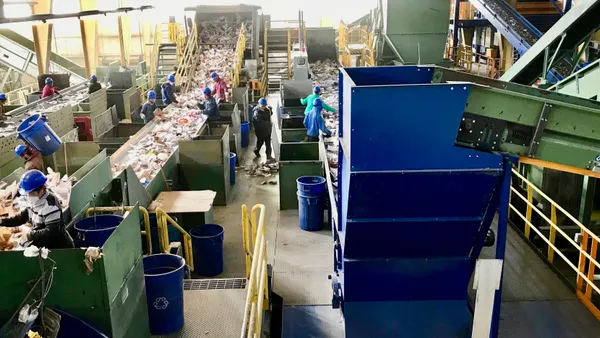Dive Brief:
- Nearly 60% of Americans have discussed the meaning of date labels on food products and 40% of adults have had "disagreements within their household" whether or not to keep or throw away a food product, according to a new poll conducted for the Grocery Manufacturers Association (GMA) and the Food Policy Action Network.
- GMA called the range of labels, without a cross-industry standard for date labeling, "problematic for consumers."
- "Clarity on product date labeling will reduce confusion [and] cut food waste," Meghan Stasz, GMA's director of sustainability, said in a press release.
Dive Insight:
Between "use by," "best if used by," "freeze by," and other labels that can appear on food products, it's no surprise that around two-thirds of Americans are discussing what date labels mean. It's already been demonstrated that different food labels will lead consumers to be more or less willing to waste food, so that confusion has concrete consequences.
GMA (partnered with the Food Marketing Institute) determined in February that "best if used by" is best to convey "quality," while "use by" should be used for products that can become unsafe after a certain amount of time; the U.S. Department of Agriculture (USDA) released guidance last year recommending that manufacturers label products with "best if used by" to reduce waste.
Guidance and recommendations, however, are nonbinding. There's currently no legal obligation or codified financial incentive for food manufacturers to use one phrase over any other — so consumers are likely to stay confused. The U.S. set a national goal of halving food waste by 2030, but it's unclear if that goal will be met. The work of some states, like New Jersey, to begin processing date labeling legislation is also not sufficient. What happens, for example, if a grocer in New Jersey purchases milk from a dairy in Virginia, where date labeling rules may be radically different? A federal mandate on date labeling may be required for the kind of cohesion and public understanding necessary to reduce food waste.








